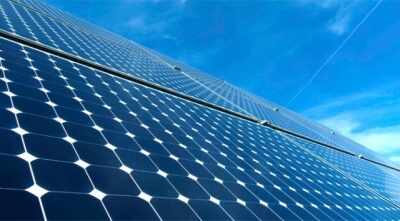New Delhi, 8 May (IANS). Adani Green Energy Limited (AGEL) has become the world’s first renewable energy (RE) independent power producer (IPP), which has achieved ‘water positivity’ by saving water in its entire operating portfolio and increasing water availability in the surrounding areas.
AGEL achieved ‘water positivity’ a year before the target of its financial year 2026 to set a new standard for sustainability.
It is the first and only among the top 10 global companies in terms of operational RE portfolio, which reaches this milestone.
A global assurance firm ‘Enterte’ has proved ‘water positive’ after a comprehensive audit and evaluation of ‘water accounting data’ of 103 operational sites and 85 water conservation sites associated with this company of Adani Group.
According to a statement by the company, “It is the only renewable energy company of this scale in India, which has been certified” water positive “.”
Being ‘water positive’ means adopting practices that not only save water, but also increase the availability of water in the surrounding environment.
For industries this means that they can provide more water to nature than the water they use in their operations.
Water-positive framework includes preserving water, enabled its consumption and contributing to its fulfillment.
This development is notable, as most solar and wind plants of AGEL are in terrain where survival and water availability is challenging.
The company said that AGEL has achieved something that was converted to the most rigid areas of India into a ‘Sustainability Hub’, which very few people thought.
From the uninhabited and barren land of Khawda in Gujarat and the dry regions of the Thar desert, the water positivity of AGEL is special about hope and innovation.
To understand the importance of this achievement, consider that the water conservation of AGEL is equivalent to about 467 Olympic size swimming pools and is sufficient to meet the half-yearly water demand of the Lakshadweep.
85 revived ponds are now benefiting more than 1,23,000 people, including water-affected communities.
More than 54 percent of AGEL operating capacity uses robotic cleaning technology for solar modules, saving about 546 million liters of water annually.
AGEL’s visit to this historical achievement began with a visionary ESG target, under which more than 200 MW operating plants were to make ‘water positive’.
This target not only was completed in FY 2023, but AGEL aims to expand ‘water positivity’ in the entire operational portfolio by FY 2026.
AGEL has achieved this remarkable target only one year before the scheduled time.
In a country where millions of people are affected by lack of water, this milestone is not only corporate success, but it is a ‘Sustainability Revolution’.
By taking advantage of advanced water-saving techniques such as watery robotic cleaning of solar panels, deepening of traditional water bodies, rainwater harvesting and humid air condensed clean drinking water, AGEL is proving that there is no need to pay the price of precious natural resources for clean energy.
The AGEL spokesperson said, “We not only generate green energy but also perform it in the most green way. Climate change will increase global water stress and India is one of the countries that are facing the most water security challenges. India has low availability of freshwater and high use levels. So this achievement matters.”
AGEL’s operating portfolio has been certified as water positive, single use plastic free and zero waste-to -landfill, which is a proof of the company’s commitment to promote sustainable development.
Started as a adventure ESG target, the campaign has become a nationwide benchmark, which has put India’s largest RE company AGEL at the forefront of the Green Energy and Blue Planet Movement.
Water resources are under constant pressure due to population growth, economic development, pollution and changing climate.
The statement stated that water-positive framework, which involves preserving water, adapting its consumption and contributing to its replenishment leads to a more sustainable environment.
-IANS
SKT/ABM










